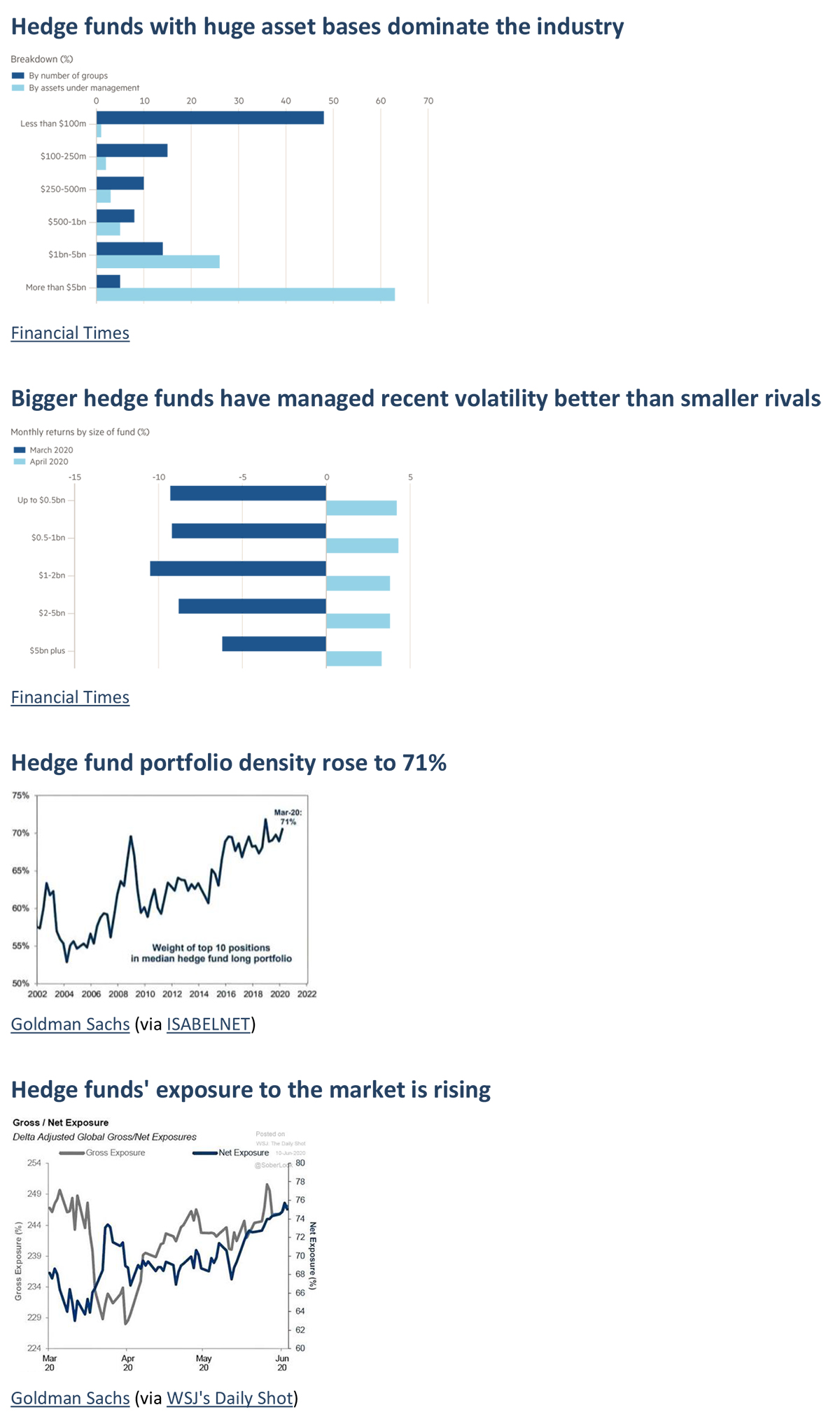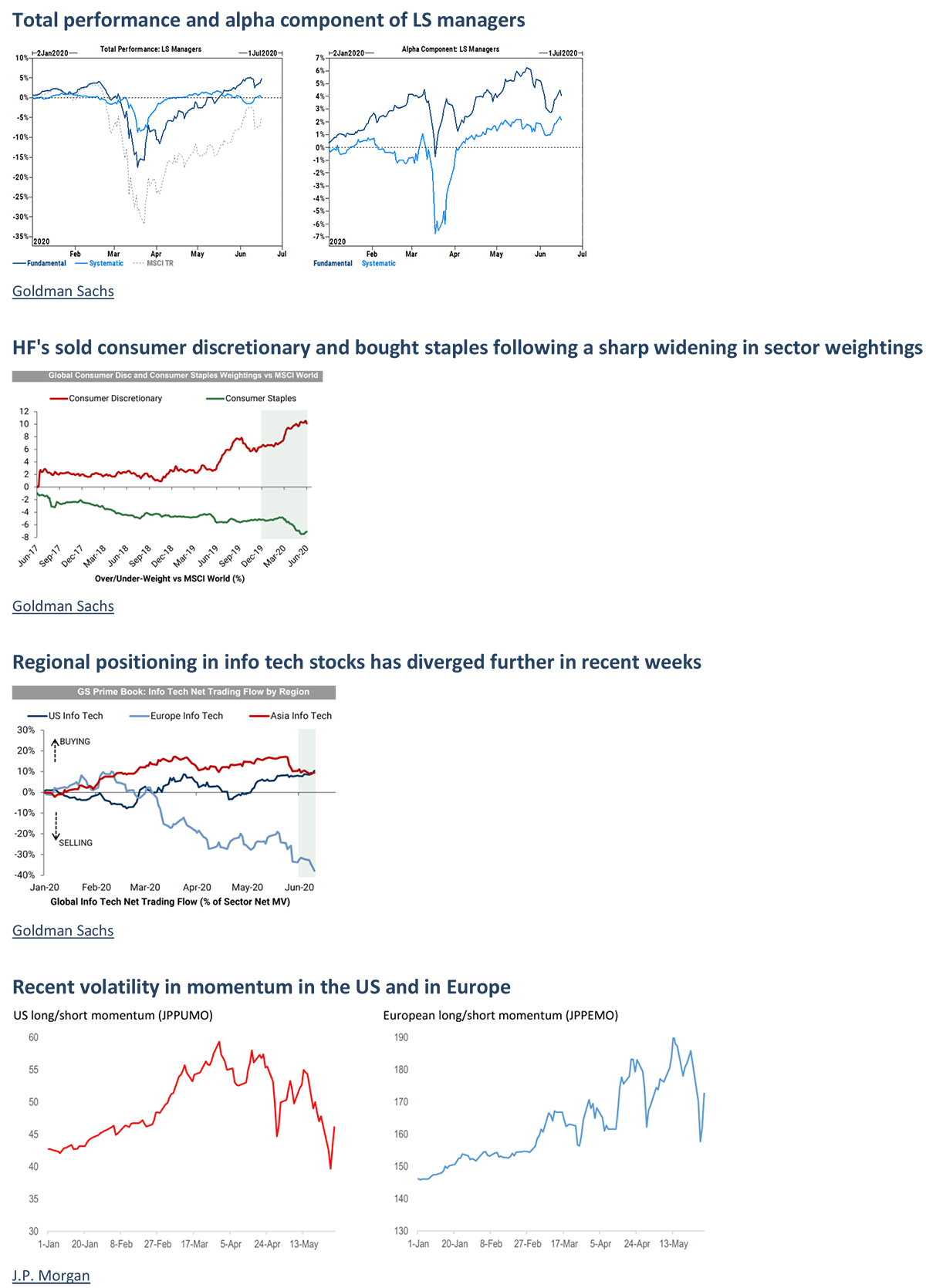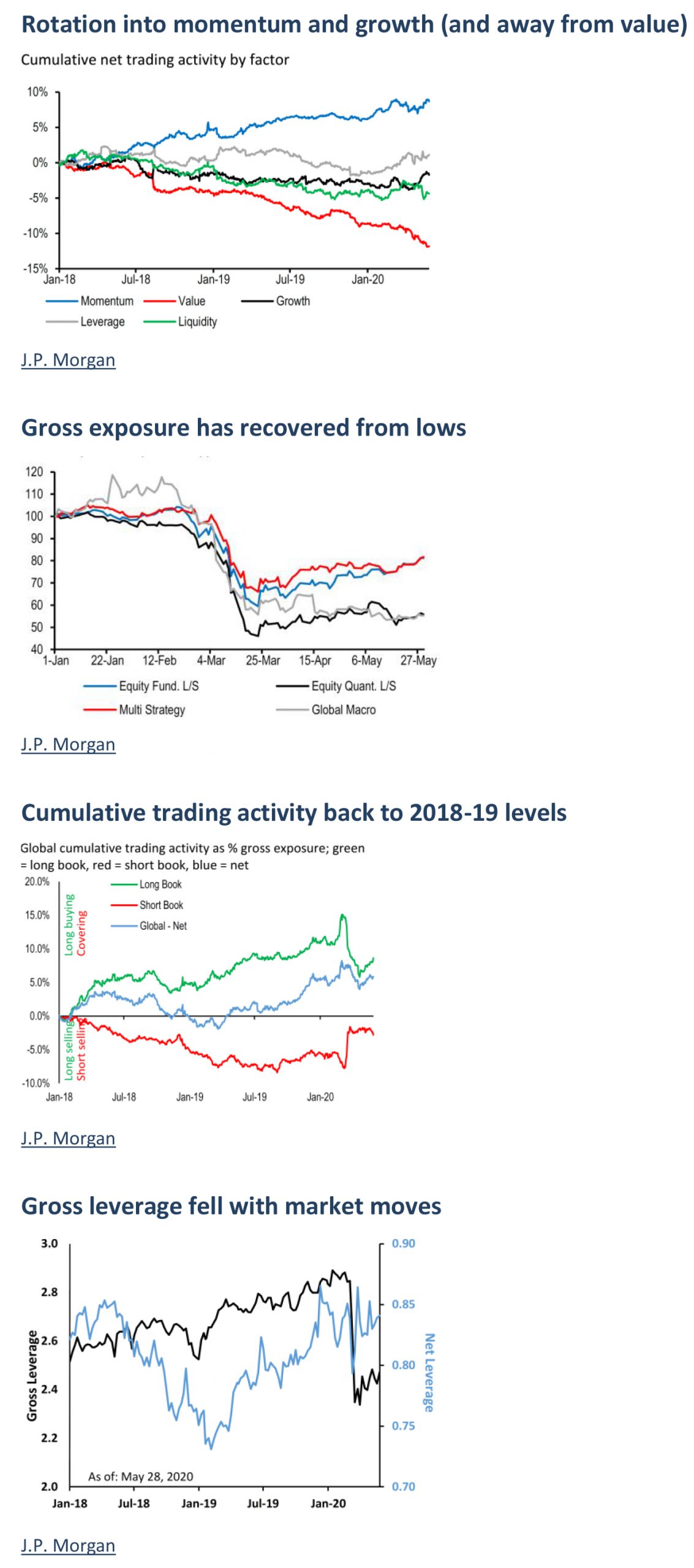"Put into perspective" - the monthly newsletter of Skenderbeg Investment Management
Q1 2020 hedge fund letters, conferences and more
"Suckers think that you cure greed with money, addiction with substances, expert problems with experts, banking with bankers, economics with economists, and debt crises with debt spending." - Nassim Taleb
Hedge Funds
Does secrecy signal skill? Characteristics and performance of secretive hedge funds
Sergiy Gorovyy Patrick J. Kelly
University of Melbourne - Department of Finance
New Economic School (NES); London School of Economics & Political Science (LSE); Centre for Economic Policy Research (CEPR)
Abstract: Using a proprietary database that tracks secrecy with respect to a hedge fund's own investors, we find few benefits to own-investor secrecy. These findings contrast with research on secrecy regarding public disclosure. Secretive funds do not outperform transparent funds, and significantly underperform their strategy-matched peers through the financial crisis, consistent with secretive funds loading on unmeas- ured risks, but inconsistent with own-investor secrecy signaling skill. Though no different in terms of portfolio concentration and leverage, secretive funds are larger, less liquid, more complex, and more likely to file 13F disclosures and request confidential treatment from those disclosures. Secretive funds have lower flow-to-performance sensitivity, even controlling for illiquidity, suggesting that investors do view secretive and transparent funds differently.
Can hedge funds time the market?
Duke University - Fuqua School of Business; National Bureau of Economic Research (NBER)
Federico Nucera Bank of Italy
Hong Kong Institute for Monetary and Financial Research (HKIMR)
Abstract: We answer the somewhat narrower question of whether hedge funds adjust their conditional market exposure in response to real‐ time changes in macroeconomic conditions, and whether doing so improves their performance. We find that hedge funds differ substantially in their responsiveness to macroeconomic data. The most procyclical market timers outperform their less active and counter‐cyclical peers by over 4% annualized with a risk adjusted alpha of 5.5%.
Examining how style affects the performance of hedge funds
Michel Guirguis Parental House
Abstract: In this paper, we studied the monthly returns of hedge funds over the period 1998 to 2003 and found that there are styles of man- agement that affect the performance. We found that differences in investment style contribute about 30 per cent of the variability in hedge funds performance. This result is consistent across the years of our sample. We have concluded that appropriate style management is crucial and affect negatively and positively the returns of hedge funds. The categories of hedge funds that are examined are emerging markets, dis- tressed securities, event driven, fixed income arbitrage, global macro, long/short equity and funds of funds. The sample is provided from Data Feeder data set. It is very comprehensive and includes hedge funds categories from the period 1998 to 2003. The database includes defunct funds and funds that ceased to operate and, therefore, is free from survivor-ship bias.
Analyzing the fee structure of hedge funds that invest in other funds
Michel Guirguis Parental House
Abstract: Funds of hedge funds ("FoHF") invest solely in other hedge funds. The hedge fund manager selects funds based on a specific invest- ment strategy or a combination of different investment strategies to achieve a better return. The benefit of combining different investment strategies is to achieve diversification and skillful management to reduce market risk. The disadvantages are the fees of asset management and the incentive fees that are charged to manage these funds. They charge a 2% management fee and an incentive fee of 15% to 25 % from the profit that is generated. The double fee structure is a disadvantage of investing in FoHF. The diversification is achieved by the multiplica- tion of fees paid by the investor. The risk is that you could loose from your initial capital due to low return and high transaction fees. FoHF cannot as easily be liquidated. They have a withdrawal period of either monthly or quarterly. As an example, we can mention large cap equity stocks that are traded in the S&P500 index in the USA and government bonds. The sample is provided from Data Feeder dataset.
Download the full newsletter here.




